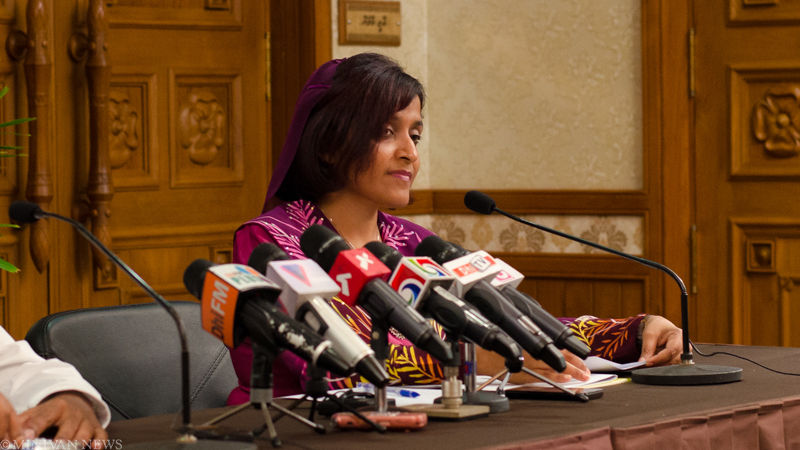A tale of two Maldives
The simple fact is that for many months the international media and political leaders in the US, UK and Europe have heard only one side of the story about the Maldives: that promoted by Nasheed and his high-profile media lawyers, writes Foreign Minister Dunya Maumoon.

26 Apr 2016, 09:00
This year, my country of the Maldives – an Indian Ocean island archipelago of just over 300,000 people – has been the subject of a US Senate resolution, a statement by 10 Downing Street, and a report from the All-Party Maldives Group, a caucus of the British Parliament.
The reason for this increase in international attention is simple: a former President of our country is waging a global campaign of concern about democracy and governance, that in reality is not about the promotion of democracy and human rights and is simply a bid to return to office through external pressure aimed at destabilizing the administration that in 2013 defeated him in a free and fair election.
The Government and the people I serve do not doubt the genuine concern US Senate Resolution 392 expresses when it calls for the Maldives to address questions over legal process in my country. Neither can there be doubt as to the sincerity the Prime Minister of Great Britain expressed some months earlier on the same matter.
What is clear however is that the court case over which concerns have been expressed – the prosecution and subsequent jailing of Mohamed Nasheed, a former Maldivian President – was conducted without the accused ever having denied the actions that led to his trial. Nasheed has admitted that, while in office, he had ordered the abduction of the Chief Judge of the Criminal Court after he had released one of his political opponents. Indeed, Nasheed has admitted that this was the case in both an Op-Ed for the New York Times, and in a BBC Television interview.
Become a member
Get full access to our archive and personalise your experience.
Already a member?
Discussion
No comments yet. Be the first to share your thoughts!
No comments yet. Be the first to join the conversation!
Join the Conversation
Sign in to share your thoughts under an alias and take part in the discussion. Independent journalism thrives on open, respectful debate — your voice matters.




